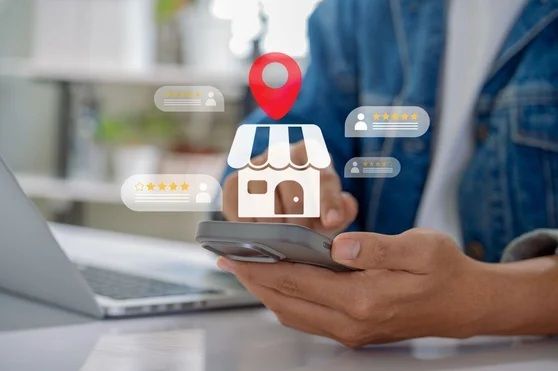How to Make It Easier for Your Local Customers to Find You Online

Summary: Do you want to improve your visibility on Google and other search engines? Follow these actions to boost your local search results.
Local search is a hot topic at WSI agencies around the globe. Consistently a WSI Top 25 Revenue Earner and Top Gun since joining in 2004, Alison Lindemann leverages her decades of traditional and digital marketing experience in her Los Angeles agency. She also authored the Lead Nurturing chapter in our Digital Minds book. Alison recently hosted a webinar on how to make it easier for your local customers to find you online. Here’s what we learned during her presentation.
Define Local Search and Benefits
Local search means being found when someone is looking for something in the local market you serve. It is perfect for businesses that are geographically focused because local search:
- Develops trust and loyal customers
- Increases visibility, site traffic, leads, and foot traffic
- Avoids wasting time competing with eCommerce giant
This is important because:
- 46% of all Google searchers are looking for local information.
- Of those, half result in an in-store visit (physical or online) within one day.
- “Near me” searches grew by 900% over two years.
Four Types of Search Results
The areas of the Google local search results page where you can potentially get your business listed include:
- Google My Business maps. Despite being a free business profile on Google, a shockingly high number of businesses have not claimed their listings. 90% of consumers use GMB to find a local company.
- Local search engine optimization maximizes your online presence based on a set of ranking criteria – proximity, relevance, and prominence (the quality of your website) – so that Google returns your listing as one of the most relevant results.
- Paid search results start with “Ad”. Each time someone clicks on your search result, you pay a fee to Google. Contact your local WSI consultant for assistance with this viable, but complex, tool.
- Google Guaranteed listings have earned a rotation at the top of the page for local searches.
Seven Actions to Implement in Your Business
Get your business listed on one or more of these four prized spots of the first page of local search results.
1. Have a Mobile-friendly Website
Having a responsive design means that your website can adapt to any screen size and makes it easier for your customers to find you because most local searches are done on phones.
If your website does not pass Google’s test, get in touch with your web developer ASAP.
2. Include Your Address on Your Website
Duh! If you only have one location, add it to your contact page and website footer. If you have multiple locations, use a “Locations” page to list each address, and create a unique page for each.
Including Schema Markup to your site tells search engines precisely what your business name is, your logo, address, phone numbers, operating hours, and more.
3. Create a Google My Business Listing
By far the most important action for local SEO. It’s an easy way to get a first page search result on a local business with these steps:
- Claim your listing
- 100% complete all your business
- Upload media
- Embrace and respond to customer reviews – even the bad ones! Watch out for WSI’s webinar on customer reviews
- Enable any suitable additional features, e.g. chat, social
- Create Google posts on your profile
- Take advantage of Google My Business’ reporting and analysis platforms
4. Add Local Oriented Content
Keep content fresh with regular blogs posts.
5. Use Business Citations
Online mentions of consistent NAP info – name, address, phone – boosts rankings. Check yours here.
6. Optimize for Voice Searches
Because most local searches are done by phone, people are increasingly using voice-activated search. Be specific and conversational.
7. Google Guaranteed
Apply for this certification that gives prospects additional confidence in your business. Used mostly in service industries.
For assistance on targeting local search to boost your bottom line, or any other digital marketing strategies, contact WSI without delay. Or watch the whole webinar session below:
About the Author
Rick spent 20 years in the insurance industry in finance, primarily developing reporting platforms for B & C stakeholders. His ability to speak to consumers of data (managers and analysts) and translate their needs to programmers led him to start his own digital marketing agency in 2004 to develop data driven solutions for business owners.
The Best Digital Marketing Insight and Advice
We are committed to protecting your privacy. For more info, please review our Privacy and Cookie Policies. You may unsubscribe at any time.
Don’t stop the learning now!


